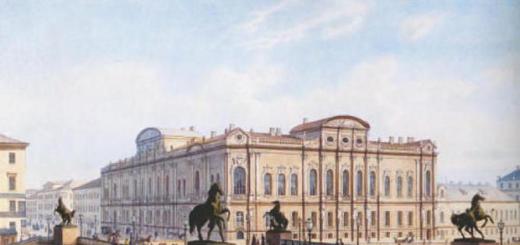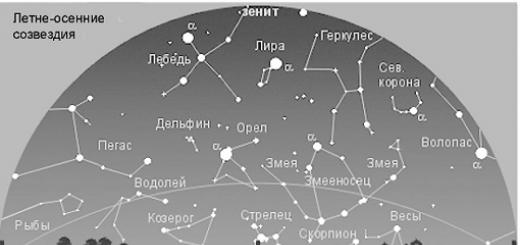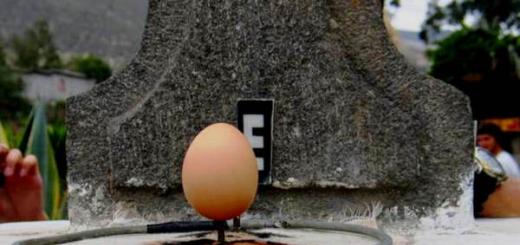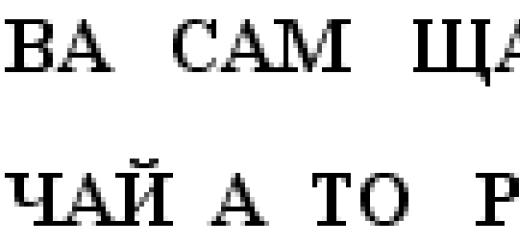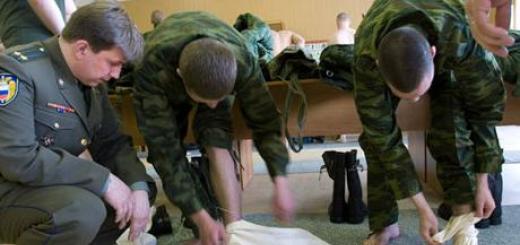16/12/2010
I had the opportunity to serve for 2 years side by side with the guys from sunny Dagestan. This is the most multinational state in the world - there are Avars, Lezgins, Laks, Tabasarans, Nogais, Dargins, Kumyks, Rutuls, Aguls, Tsakhurs and others ... and they are all Dagestanis.
E There is such a legend that my Dagestan army friend Ibrahim told me that God walked around the world with a bag and handed out languages to the peoples. In the region of Dagestan, the Lord dozed off and the bag overturned, from which more tongues were spilled into a small territory than it should be.
I served in the Skovorodinsky border detachment. Even then I was perplexed - why are Caucasians sent to serve us? Do they have problems with the place of service there? So, then we were told to the non-fired training fighters that when the call of the Dagestanis came, their group of 15-20 people would “hold” the entire training center. We then boasted, they say, but this cannot be ... You know, that's what happened. They always kept together and were ready to help each other, regardless of whether their compatriot was right or not.
But the Russian guys could not boast of the same cohesion. True, we had Captain Akhromeev, the head of the training frontier post, who visited hot spots. And the sergeants do not miss. In general, in order to repulse the Dagestanis, who could open the doors of units with their feet, we had a new orderly command: “Dagi!” When we heard, no matter what part of the location we were in, everyone ran to the bedside table of the orderly, grabbed the Dagestnats by the arms and legs and threw them out the door. Quietly, we discouraged uninvited Caucasian guests from visiting us. But that was just a tutorial.
Other orders reigned in the garrison, or rather, the Dagestanis reigned there. In each unit there were 4-5 people, but this was enough to keep the entire unit in submission. When I moved to the garrison, I also found demobilizations, who, according to rumors, "feeded" not only the detachment, but also Skovorodino, near which the unit was located. As soon as night fell, they changed into tracksuits and engaged in racketeering. Therefore, when they were demobilized, both the civilian security forces and the leadership of the detachment breathed a sigh of relief.
Yes, what can I say, when the Dagestanis are together, a tendency to crime immediately manifests itself. No, I'm not talking about everyone - there were guys among them who were above all this, but this is more of an exception. And I had to face it, as they say, on my own skin. It happened after I was transferred from the commandant's company to the sapper's. In the first one, I still had Amur friends, in the new unit - no one and a bunch of Dagestanis. The very first salary that we received in the office of the head of the company, they tried to grab it from me. Everyone who left the office with money was invited to the toilet room to “talk” by the representatives of Dagestan. I decided for myself to hold on to the last. There were threats and “pressure on a sore spot”, but I left the toilet with my denyuzhka in my fist ... went out into the street - lit a cigarette out of annoyance. I understood very well that I needed to serve with them for another 1.5 years ... My heavy thoughts were interrupted by some soldier who shouted out: go quickly there, our Amur people stuck in for you ... It turns out that someone informed our commandant's office company that they tried to "press" me. When I started going up to the 5th floor of the engineering company, I saw my commandant comrades... The fight never happened then - alas, I did not fulfill the role of leader assigned to me, who would shout: “Beat, dagov!” But after this story, they began to respect me.
Over the years of service, I saw how cruel and merciless the Dagestanis can be ... I will not draw terrible pictures here, and the atmosphere is so electrified by the events in Moscow. I want to say that I was able to find a real friend among the Dagestanis... Unfortunately, later, under pressure from his brothers, he suddenly stopped communicating with me. But what he told me was enough to understand something about this people.
From the stories of Ibrahim, I understood why the sons of the mountains dislike us:
1. Disunity a la my hut on the edge, the lack of mutual assistance among Russians;
2. Cowardice, lack of courage;
3. We throw bread on the ground;
4. Abortions of our women and, in general, not wanting to have many children;
5. Availability of our women;
6. Drunkenness of men until the loss of pulse;
7. And much more...
It is clear that it is possible to compile a no smaller list of Caucasians from the position of the Russians. But the thing is different - we need to do something ourselves to be respected. To form public opinion - to demand from the government the stimulation of national projects and other things. But the most important thing is that we should be respected - we need to start respecting ourselves ... And this will not work without God's help. It turns out that the only accessible national idea is spiritual uplift through Orthodoxy. It is through the faith of our ancestors that we can be united, courageous in Christ, respect other people's work, continue our family in many descendants, be chaste and know the measure in drinking. Dostoevsky said to the point that a Russian peasant without God is rubbish. Can you stop being a jerk?
It seems like he named banal things, but we have a program for action ... At least on the bus, when someone offends someone - after all, we can intercede, and not hide our faces out the window? Otherwise, things won’t move further than kitchen patriotism again ... And you shouldn’t go to extremes either ... I’m talking about those innocent guys who were kicked to win back ... After all, this is a real problem when we empathize with violence .. After all, according to the word of St. Basil the Great, who looks at evil without disgust, will soon look at it with pleasure. What kind of Christians are we after this? ?
Many interesting stories about the Caucasus were sent to me by our subscribers, let's read them:
**
Served in 2010 in the Far East. A company of 40 people was kept at bay by 6 Dagestanis. Everything would be fine, because their fellow countrymen from other units usually joined them. In short, the last straw was the beating of two boys from our conscription, one Ukrainian and a Belarusian, they objected to something, they swept them away so that they knocked out one eardrum, and broke another rib.
Well, the next day, one of the company, a Mongol boy, got up, small in stature, but strong, the square was driving. "You do what you want, but I went to crush their heads." Well, we are in shock, but he really went alone, well, then I also jumped up, began to call everyone, the boys got together and went to the smoking room, where they usually all hung out. Well, after that it was generally chic, the Mongol is handsome, flies up to the first one and clearly prescribes a hook in his jaw, knocks out 2 teeth and a knockout. The Dagestanis are in shock, well, it sounded like a signal, they all flew at them and let's beat everyone with what, I beat one with my own tarpaulin boot. They started yelling, those same sidekicks of about 15 people ran up. But we scattered everyone anyway, they somehow quickly sat down and stopped resisting, and the other one started running along the parade ground, his heels were sparkling.
As a result, they are brave while walking in a herd, and if the wall is on the wall or one at a time, then they are cowards and weaklings. After the case was hushed up and 10 of them got into the medical unit, they became lower than the grass and quieter than the radar. We even threatened them later so that they would not rock the boat, but many also got it, for example, for me, too, while I was hitting one, the second ran up and hit me on the head with a stone from behind, and two scars remained. So it goes.
**
He served in the 90s, in Novorossiysk, in our company half of the grandfathers are Caucasians, too, somehow the grandfather tried to force him to erase his uniform. I was stupid for a long time, and when he realized that I would not wash, he chased me around the washbasin. Finally found another one. Then we were transferred to Volgograd and served with the Kabardians until demobilization. Somehow he fought with a Kabardian, in the Urals with an awning on the go. He is small and comfortable for him, and I bend over. Another Kabardian jumped up and started waving his legs, I covered myself with this small one. After that, respect began. It's the only way with them. Slightly ran over, immediately beat.
**
How to deal with the highlanders in the army - they are also people, they respect and fear the strong and cruel very much. Never climb on a friendly team. They are afraid of punishment. In my company, the Dagestanis washed the floors and did everything that is supposed to be a soldier. There was no difference between Russian, Kazakh, Chechen for me.
Somehow I brought 6 to one of the towns of Buryatia - there they were gathered from all over Russia and there they leveled and built officers and ensigns. In the first minute, he helped the duty officer in the company understand how it is supposed to wear a military uniform and how the duty officer and orderly should act when strangers appear in the company. An attempt by the personnel of the company to object to me was stopped by the six fighters who came with me, explaining to the people in a nutshell who was in front of them and what they would do with them now. In the evening they saw me off with an honorary escort, they were afraid that I might be late.
**
All these stories are nonsense about justice, etc. Only power and nothing else. When I got honored after training, we had Russian grandfathers in our company - athletes, calm as elephants. No fights or bullying. They not only kept discipline, but also dragged the service themselves. I have never heard from anyone that the Dagestanis would put things in order without beatings, and even more so that they would carry out the service themselves.
The increased quota for citizens of Dagestan is, perhaps, all that distinguishes the current spring call for service in the Russian army from the previous ones. The quota was increased six months ago by the decision of Defense Minister Sergei Shoigu, which he adopted after a conversation with the former president of Dagestan, Magomedsalam Magomedov. The quota was increased not to tens of thousands, as in Soviet times, but only to a modest 734 people. Very soon, young Dagestan conscripts will be distributed among Russian military units. But are they waiting there? Nationalists and mothers of conscripts are afraid of an increase in Caucasians in the Russian army, and the military leadership is in no hurry to solve the problem. OK- inform figured out: what is the role of the army in Russian society, does our country need Caucasian soldiers, and what can be done to avoid the so-called "ethnic hazing" in the ranks of the armed forces?
The best tool for socialization
The economy of Dagestan is the 35th among the subjects of the Russian Federation in terms of gross regional product. But the entire economic growth falls on the capital of the republic. The areas closest to Makhachkala are much poorer. There is no work there, there are frequent conflicts around certain land plots.
Considering that Dagestan is one of the most "giving birth" regions, one can understand Magomedov's position. Young people who are “superfluous” for the economy should better go to the army than to the Islamist underground.
In addition, the army in Russia has always been used for socialization.
So, in the Russian Empire, the backbone was registered Cossacks. They practically did not distinguish between life and service. Subdivisions were formed on the basis of villages and settlements. Colleagues knew each other from childhood. But such an army was not suitable for new types of warfare, it did not accept innovations well, fought with old-fashioned methods and did not lend itself to centralized training.
The Soviet army is an army of workers, residents of large cities. A worker from the Putilov factory in Petrograd and a worker from Kazan served in the same units.
The undoubted advantage of this approach is that in the event of separatism, the army does not go over to the side of the rebels. She generally remains loyal to the federal government. The rebels can recruit their own units and train them in their camps. But these will be illegal gangs. Destroy them prescribes international law.
Consolidate or disperse?
But now the army as a mechanism of socialization is starting to fail. This is due to the deepening economic and socio-cultural gap between Russia and the Caucasus.
The main reason should be sought in the bankruptcy of the mountainous regions of the Caucasian republics. Young people from impoverished villages descend to the plain and cause many problems for the local Caucasians. Lacking sufficient horizons and erudition, the highlanders are easily led by the speeches of preachers of aggressive teachings.
Today, a number of experts are proposing a variant in which Caucasians will serve "with their own people" in their own republic. In fact, this is a return to the practice of "wild divisions". A Caucasian serves with Caucasians not far from his native home, being in a special position.
Special conditions for Dagestanis would set a precedent for other regions, including Russians.
However, this practice is dangerous in perspective.
First, it is the destruction of the process of socialization. If suddenly the situation in Dagestan deteriorates sharply, those whom Russia taught to hold weapons in their hands will turn these weapons against her (having previously stolen them from Russian warehouses).
Secondly, special conditions for Dagestanis would set a precedent for other regions, including Russians. Governors will begin to raise the question: "Why should Omsk/Irkutsk/Murmansk citizens serve far away, and not a stone's throw from their home?" It's not that the governors are worried about the conscripts. They just start collecting. thus, political capital and votes to the detriment of the country's defense unity.
Another popular expert opinion is to disperse Caucasians as much as possible among all military units. The conflict will be divided into a series of small scandals and trials in different parts. True, with an increase in the number of Caucasians in parts of these conflicts, there will be more, and they will be more resonant.
Conscripts will be allocated guarantors
The confrontation between the ethnic majority and the ethnic minority in the army is not a purely Russian problem. Many countries have faced it.
The ideal solution: a fully professional army. The contractor can always defend his interests as an employee, in the priority order of legal proceedings. It is clear to the violent daring that dismissal from the ranks of the armed forces means loss of income. And since this is, as a rule, the eldest son and breadwinner, he will not allow himself boorish behavior.
The army is a closed institution, unable to solve the problem of hazing.
Another option: public control. The army itself is a closed institution, unable to solve the problem of hazing, neither between soldiers of different years of service in the past, nor between Russian and non-Russian soldiers in the present. Moreover, the Caucasian diasporas willingly go to meet the public. Recall how a year ago Ramzan Kadyrov fired the deputy plenipotentiary of Chechnya under President Tamerlan Mingaev after his son threatened StopHam activists to “cut out their entire family”. The head of Ingushetia, Yunus-Bek Yevkurov, has repeatedly stated that he will "careerly" punish the families of those who violate the laws in the Russian part of Russia. After a mass brawl involving Caucasians in the Frunzensky district in February, the diaspora organized an urgent departure of relatives to take the fighters from St. Petersburg.
Recently, as part of the idea of public control of the army, the leadership of Dagestan proposed the creation of an institution of guarantee. At each military registration and enlistment office in the republic, commissions can be formed from clerics, elders, representatives of municipal and regional authorities. Each conscript will have his own personal guarantor, who will play the role of mediator and peacemaker.
Video recorders in the barracks and generic responsibility
There are other possibilities of public control. For example, video recorders in the barracks, on the parade ground and in the corridors of the unit. This is no more expensive than the installation and subsequent dismantling of video cameras at polling stations. Permanent fixation of what is happening will allow you to identify the perpetrators of hazing and discipline the soldiers.
Another promising method is the practice of collective tribal responsibility for the misconduct of a serviceman. As the Caucasians themselves put it politically correct, "responsibility for actions unworthy of a true Muslim." The leaders of the North Caucasus are already using this practice against the unbridled children of officials.
The most obvious solution is the establishment of a hotline under the control of the plenipotentiary for the North Caucasus Federal District with the ability to promptly process incoming applications, including anonymous ones.
It would also not hurt to finally establish a military police, the creation of which was suspended after a corruption scandal involving the team of former Defense Minister Anatoly Serdyukov.
Expert opinions
Marina Ivanova, employee of the Department for Youth Affairs of the ZATO Administration in Severomorsk:
There are a lot of southerners in the Northern Fleet. Every second. And it always has been. Usually they are sent as far from home as possible, so the southern guys go to the Northern Fleet. Sailors-conscripts are all the same. They are equally glued to the girls if they go to the city on leave. Equally skinny. They are equally badly fed. Sleep equally. There are no differences. I don't know about the rest of the army. But, in my opinion, nothing special needs to be done, they are the same people as the Russians. The same boys, cut off from the family and abandoned God knows where against their will.
Andrey Klyuchevsky, military psychologist:
In some parts, lawlessness is going on, and Caucasian officers without pants are thrown out into the street at night. But our officers forgave a lot to Caucasians: if they drink, if they do something wrong. They have their own pens in their heads. Because of this, they unite in groups and try to subdue others, the unorganized majority. However, if one such person is appointed to a leadership position, he will go out of his way, but will make his unit the best in the part. Their tribal honor does not allow them to be worse. You just need to know how to work with them.
Other materials about the army onOK-inform
In chapter
Against the backdrop of more frequent incidents across the country with a pronounced ethnic coloring, in early July, the military commissariat of the Khanty-Mansiysk Autonomous Okrug made a statement about the growth of Wahhabi sentiment among conscripts from the North Caucasus. While acknowledging the existence of numerous problems with conscripts from the region, the military reported that the troops received tacit instructions to limit conscription from certain national republics. "Our Version" understood how acute the national question is in the army.
One of the few decisions for which the army is grateful to the previous Minister of Defense Anatoly Serdyukov is the rejection of conscripts from the North Caucasus. The military department is trying to avoid commenting on the fact of a ban on their service, since the Constitution does not allow officially stopping conscription in any subject of the Federation. However, the de facto conscription campaign in the Caucasus has only been imitated over the past few years: registration of conscripts in the military registration and enlistment offices is carried out, commissions operate, but only a few manage to get into the troops. So, in the fall of last year, for example, only 179 people were called up from the most populous southern republic - Dagestan.
Highlanders openly refused to obey the officers
Meanwhile, in recent years, the problem with the shortage of conscripts has sharply worsened. Today, even in permanent readiness units, the shortfall of soldiers is up to one third. The new leadership of the Ministry of Defense is feverishly looking for ways to remedy the situation. One of the options is the resumption of mass conscription from the republics of the North Caucasus. There really is a huge conscription resource concentrated there. Until 2010, 15-20 thousand people were annually drafted into the army from Dagestan alone. However, the need for the presence of these conscripts in the troops then strongly doubted. Such a strong concentration of Caucasians in the troops led to an incredible aggravation of the criminogenic situation, the army was agitated by a number of hazing incidents. The highlanders openly refused to obey the officers and actually kept entire garrisons at bay.
As Alexander Perendzhiev, an expert of the Association of Military Political Scientists, told Our Version, it is fundamentally wrong to restrict the right to serve in the army of Caucasians, especially in a situation where there is a huge shortage of conscript resources in the country, and they want to attract even women and foreigners to the service. According to the expert, it is unacceptable to create a precedent when people are not called up on a national basis.
Apparently, the new Defense Minister Sergei Shoigu partly agrees with this. At the end of last year, the leadership of Dagestan reported that they managed to agree with the Ministry of Defense that the number of recruits from the republic would be sharply increased. According to some reports, it was planned to call up about 5 thousand people this spring. The trend towards an increase in the number of Dagestan conscripts in the Russian army is indeed visible, but on a much smaller scale. This year, the republic received a distribution order for 800 people.
In other North Caucasian republics, the situation is even worse: about 400 people are called up from Ingushetia, and the last large-scale conscription in Chechnya was carried out more than 20 years ago. Most likely, the military has not yet fully decided on this issue. For comparison, the number of conscripts from neighboring Russian regions is an order of magnitude larger - this year more than 5 thousand people are preparing to be sent to the army from the Krasnodar Territory, more than 2 thousand from the Stavropol Territory.
Jigits rush to the troops
It should be noted that the leadership of the Caucasian republics cares about the opportunity to serve for their conscripts, however, not only and not so much out of patriotic motives. For example, after the actual cessation of conscription in the republic, the Dagestan youth began to have problems with employment in law enforcement agencies (where almost every young dzhigit strives so hard to get) and where they are not taken without military experience.
As a result, today there is a unique desire of young people from the Caucasus to get into the army. Over the past few years, there has been a tendency when a bribe of 20-150 thousand rubles is given in Dagestan for conscription. Some conscripts move to other regions and register there in order to be called up at the place of new registration.
In order to break through the additional quota for conscripts, local military commissars promise that they will send only the best to the army, most of whom will have higher education, and also intend to introduce a guarantee system into the work of military commissions, under which the leaders of the diasporas will be personally responsible for each soldier .
Meanwhile, the leadership of the North Caucasian republics self-critically admits that their young people are not very suitable for military service: a large part of the hot Caucasian guys are poorly managed. Moreover, the situation is aggravated by modern realities in society: if earlier the elders taught the younger generation in the family that in the army it was necessary to unquestioningly obey the commanders, now the main emphasis in the instructions is the need, first of all, to observe religious canons.
You can't argue with the facts - there are far from isolated cases of open disobedience to the orders of commanders, opposition of national customs to military regulations. True Muslims refuse to participate in chores, dumping hard work on their colleagues. Sometimes it comes to the point of absurdity: Caucasians refuse to shave their beards, to be examined in a psychoneurological dispensary and examined by a surgeon. All these whims lead to the undermining of discipline, to the aggravation of contradictions and become the cause of conflicts. In addition to this, some have a craving for the dangerous ideas of radical Islamism (Wahhabism).
What affects the hot heads of southerners?
As the commander of one of the military units of the Southern Military District told Our Version, commanders of all levels prefer not to take people from the North Caucasus into their units and, under any pretext, try to get rid of their presence in the units. The officer notes that today, when the term of service on conscription has been reduced to a year, commanders literally do not have time to deal with the worldview of each soldier.
It must be said that in the Soviet army the situation with the Caucasians was not completely cloudless. The main way to fight the community was the uniform distribution of the highlanders in all parts of a large army, their "critical concentration" was not allowed. But the main instrument of influence on the hotheads of the south were public associations, such as the Komsomol, and tight control over the mood among the military.
Unfortunately, the optimal levers for ideological and propaganda work in the Russian Armed Forces have not yet been invented. The situation became even more complicated with the collapse of the institution of political workers and was aggravated by the abolition of the guardhouse.
POINT OF VIEW
Alexander Perendjiev, Expert of the Association of Military Political Scientists:
- The critical situation that has arisen with representatives of the Caucasus shows the weakness of the military command and control system, especially its educational component. In fact, there are no mechanisms in the Armed Forces that can affect this category of servicemen. It is a shame to admit it, but today the state ideology, the system of military-patriotic education cannot counteract the very ideas of Wahhabism, which are actively spreading among Muslim youth. There is a feeling that in the army they give in to this problem, and do not try to solve it. Perhaps the leadership of the Ministry of Defense does not even know how to do this. I myself commanded a construction company in which 60 people from the North Caucasus served. Of course, managing such personnel was difficult, but possible. In my opinion, recruits from these republics have not changed, they have not become better or worse, but the methods of working with them have been forgotten. For example, Muslims used to be drafted mainly to construction or railway units, where they served without weapons. Officers were purposefully trained to work with problematic national minorities. And today, to work with Caucasians, it is also necessary to select the most prepared, strong-willed, knowledgeable national characteristics and better trained officers and sergeants. At the same time, it does not hurt to closely cooperate with Muslim religious organizations - for example, contact was previously established with the Council of Muftis of Russia.
The community stands apart among people from the Caucasus - "Caucasians" in the terminology of the Soviet army. In our time, they are usually united in the troops by the common name "Dagestanis" or "Dags". It is fundamentally important that people from the Caucasus unite under any conditions and can even organize a rebuff to their grandfathers, as well as the actual and official leaders of the unit. Moreover, Caucasians are united not only within the framework of one unit, but the entire part as a whole. At the same time, in any conditions, they rush to help their own, which is a manifestation of the national mentality (more about it can be found in the chapter "Army in the Caucasus").
With a small number of Caucasians are relatively harmless, at least they do not violate the unity of the team, do not destroy the established hierarchy of hazing or ustavshchina. Their grandfathers are afraid of them, and keep them at some distance, or include them among the privileged members of the unit. In any case, whether they are among the chosen ones or simply left to their own devices, Caucasians are characterized by excessive and often senseless cruelty towards others. They have only two psychological models of behavior: they either recognize others as higher than themselves in status, or lower; in principle, they do not consider representatives of other nationalities as equals.
When there are too many Caucasians in the unit, the situation gets completely out of control. Caucasians completely subjugate hazing, ceasing to maintain relative neutrality with grandfathers, and deal a serious blow to the hazing by introducing their excessive cruelty into relations in the unit. Needless to say, they completely replace grandfathers in the worst sense of the word and turn the young into personal slaves. And if, under hazing, such slavery is based largely on a voluntary beginning, on the understanding that oppression will pass with a lifetime of service, then when Caucasians dominate, all representatives of other nationalities are doomed to a subordinate position until the very end of their service. Inequality thus takes on particularly striking forms, without the admixture of social justice, when respect comes with service life.
It comes to the point that the officers themselves treat Caucasians with apprehension, shun them and do not take any measures to restore order. There is a strong belief in the army that a Caucasian is capable of any extreme, including simply stabbing an offender with a knife, regardless of his status. Such a belief did not arise from scratch, it is associated with the general "recklessness" in the extreme situation of Caucasians, especially Chechens. They simply blow the roof, and they cease to be guided by reason, completely surrendering to the instincts of a fighter. So Slavic patience is not characteristic of Caucasians in principle, and they turn out to be foreign inclusions in the Slavic army at its core.
The only control over Caucasians can be found only if the unit has a Caucasian grandfather, a contract soldier or an officer who immediately builds the most severe hierarchy among his own. Also, among the Caucasians, a strong de facto leader can stand out, who will also build a rigid hierarchy, only it will be even more difficult to introduce him into the official hierarchy than grandfathers.
Now they say a lot of flattering words about the white movement and officers of the times of the Russian Empire, however, they forget one interesting moment in the social practice of our feudal ancestors: balanced nationalism. The vast majority of the officers of the Russian Empire were of Slavic nationality, the inclusion of Jews among them was an exceptional phenomenon. There were special qualifications in educational institutions on a national basis, moreover, these qualifications were aimed at limiting the penetration of foreigners into Slavic educational institutions, while the Soviet qualification, on the contrary, aimed to put people from national republics in a privileged position.
But another aspect of the imperial national policy is important for us. Indigenous peoples (including the Samoyeds) of the Urals and Siberia, residents of Turkestan, foreigners of the Trans-Caspian Territory, Muslim peoples of the North Caucasus (paid tax instead of service), residents of Finland (the state itself paid for them a fixed deduction to the treasury of the Russian Empire). Cossacks close to Caucasians in spirit served only in special Cossack troops. And this is not the whole list. Here we can say that, they say, the Russian top leadership did not trust some of the conquered and constantly rebellious Caucasian peoples, but how then to explain the exemption from conscription of a number of foreigners and Samoyeds? It can only be explained by a historically developed clear understanding that people who undermine the combat effectiveness of the Russian army have no place here. Too much at that time depended on the army (see the chapter "Some interesting touches on the organization of the army of the Russian Empire").
Thus, in the policy of the Russian Empire, which did not take representatives of a number of Caucasian, Asian and Trans-Ural peoples into the army, even under conditions of universal military service, there was a sober calculation and a balanced national policy. Now all this is gone, and army personnel officers are forced to proceed from the officially accepted postulate of ideology about the need to create all conditions for the national republics to the detriment of national Russian interests. According to the official position of those in power, we do not have the same people as the Russians with a special mentality. In this regard, the authorities continue the policy of the USSR, which partly led to its defeat in the Cold War.



